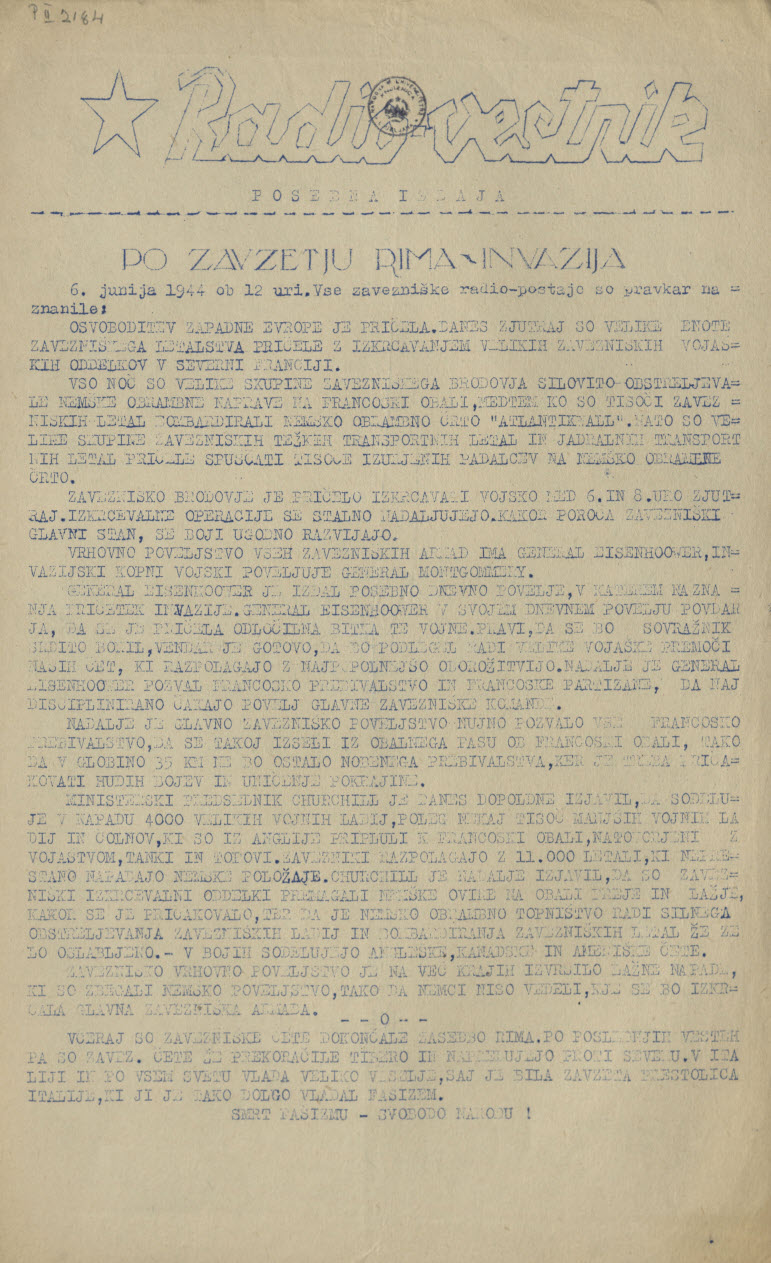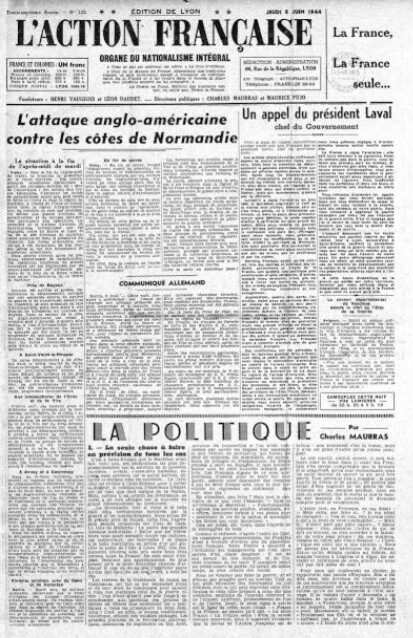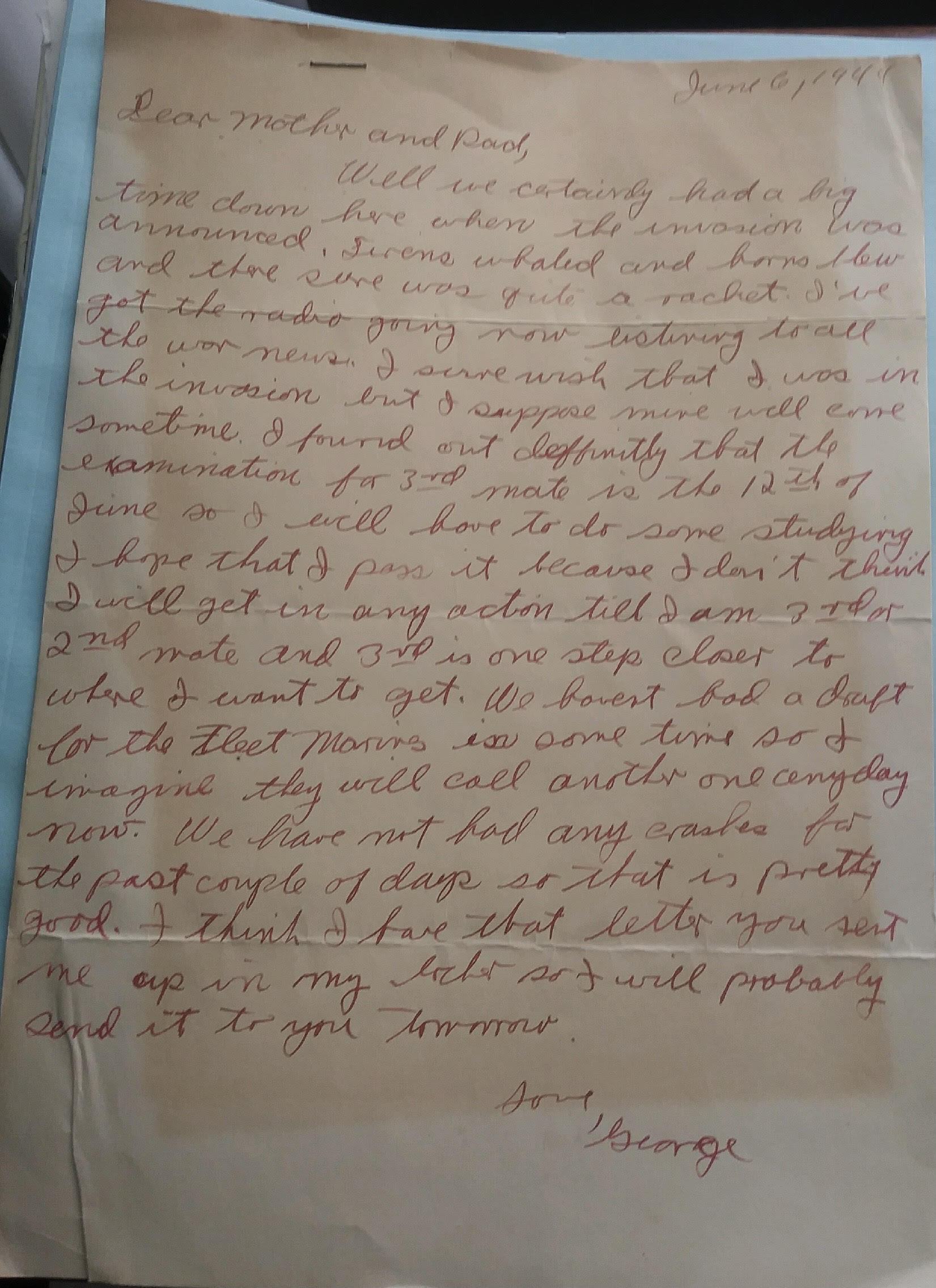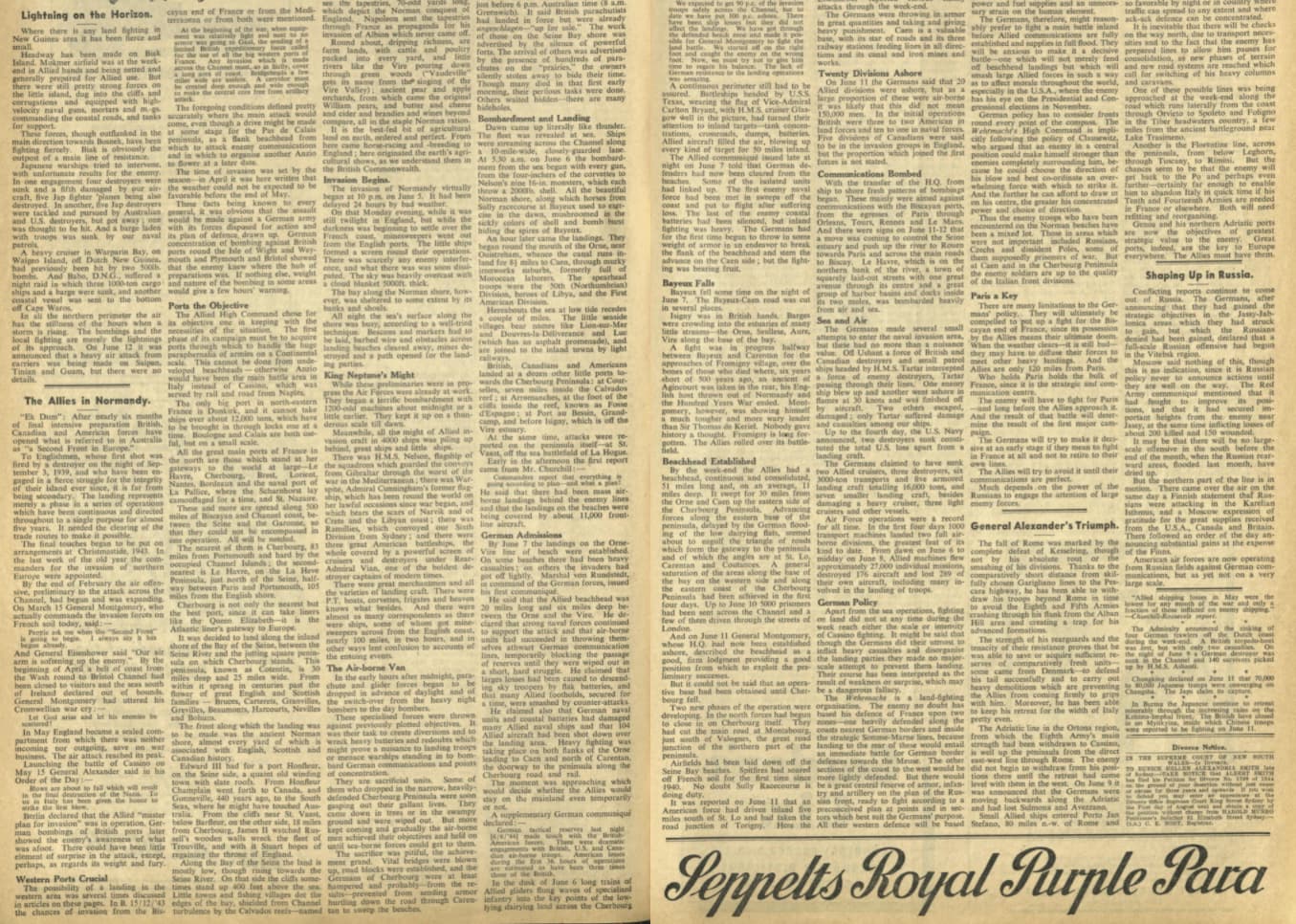
From Slovenia (then northern Yugoslavia), I found this special edition of a newspaper Radio Vestnik. Radio Vestnik was an underground newspaper that notified people about the events of the second world war in Yugoslavia and Europe.
The file is available here.
Below is my translation of the news.
Radio-Vestnik
Special edition
AFTER THE CAPTURE OF ROME - INVASION
June 6th, 1944, at 12 o’clock. All allied radio stations have just announced:
The liberation of the western Europe has begun. This morning, large units of the ally air force began landing large allied squads in northern France.
During the night, large groups of the allied navy have been fiercely firing on the German defense installations on the French coast while thousands of ally airplanes bombarded German defense line “Atlantikwall”. Then large groups of allied heavy transport planes and gliding transport planes began dropping thousands of trained parachuters on the German defense line.
Allied navy began disembarking army between 6 and 8 in the morning. Landing operations are continuously progressing. According to the reports of the allied HQ, the battles are developing favorably.
The supreme command of all allied forces is under General Eisenhoower (Note: it is originally misspelled with double o, so I kept it in this translation), the invasion land army is led by General Montgommery (Note: also misspelled in the original).
General Eisenhoower has given special command of the day, in which he announced the beginning of the invasion. General Eisenhoower has emphasized in his command of the day that the deciding battle of this war has began. He says that the enemy will fight furiously, but it is certain that it will submit due to the vast military supremacy of our forces, which have at their disposal the most perfected weaponry. Following, General Eisenhoower called upon the French people and French partisans to in discipline wait for the orders of the head allied command.
Next, the head allied command urgently called on all French population to immediately move out from the 35 kilometers coast area on the French coast, so that there will be no person left, since many battles and the destruction of the landscape is expected.
Prime minister Churchill has today announced that the attack includes 4000 large warships, alongside a few thousand smaller warships and boats, which sailed from England to the French coast, filled with military, tanks and artillery. Allies have available 11.000 planes, which ceaselessly attack German positions. Churchill continued that the allied landing forces defeated German barriers on the coast quicker and easier than expected and that the German defensive artillery is already very weakened due to the bombardment of allied ships and planes. - The fighting includes English, Canadian and American forces.
The allied supreme command has commenced fake attacks on multiple places, which confused German command, so the Germans didn’t know where the main army will disembark.
- - 0 - -
Yesterday the allied forces completed the conquest of Rome. And according to the latest news, the allied forces already crossed the Tiber and march northward. There is a lot of happiness in Italy and across the world since the capital of Italy, in which fascism has ruled for so long, has been taken.
Death to the fascism - freedom to the nation !



